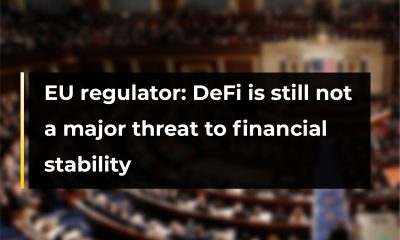Education
What is cryptocurrency regulation?

Cryptocurrencies, like Bitcoin and Ethereum, have become increasingly popular in recent years. However, their decentralized nature and the anonymity they provide have created challenges for governments and regulators who seek to ensure that they are used safely.
The regulation of cryptocurrency is aimed at ensuring the proper use of these virtual currencies while protecting consumers from frauds or scams and ensuring it isn’t used for illegal activities like terror financing. Regulators set guidelines on how cryptocurrencies should be traded between individuals or entities as well as what information is required during such transactions.
This regulation can vary widely from country to country with some nations taking a friendly approach towards crypto trading like the El Salvadoran government while others impose strict rules limiting access to these assets as in the case of Nigeria when the Central Bank prohibited financial institutions from facilitating cryptocurrency transactions and to investigate and close the bank account of anyone involved in crypto trading.
Cryptocurrencies have become increasingly popular in recent years, but the regulatory landscape has been inconsistent and fragmented. Regulators globally have been struggling to keep up with this rapidly evolving technology considering emerging innovations like DAO, dApps, smart contractscontract, etc.
Some nations are taking steps towards establishing clear regulations that govern how these digital assets can be traded or used for transactions while also ensuring consumer protection against frauds & scams associated with them.
For instance, in the U.S, bitcoin is regarded as an asset similar to a property for tax purposes, the EU sees bitcoin as a crypto asset and the Canadian government considers it as a commodity.
It remains unclear which direction different governments will take regarding crypto regulations going forward – whether they’ll opt to embrace cryptocurrencies’ benefits fully or continue implementing strict measures against them due to concerns over criminal activities like money laundering/terrorist financing enabled by anonymous transfers via cryptos.
Cryptocurrencies have been a major disruptor in the financial world, creating new opportunities and challenges for businesses, governments, and regulators worldwide. Some of the common areas of cryptocurrency regulation include: KYC, taxation, securities laws, consumer protection laws etc. Moreover, regulations around token sales and other fundraising methods used by blockchain-based companies are another key area being regulated globally or explored as in the case of Nigeria.
Closing thoughts
The landscape surrounding cryptocurrency remains relatively uncharted territory when it comes to policy-making. Hence many governing bodies across the globe remain skeptical towards this evolving and fast paced market. Cryptocurrency regulation is still an ongoing process, with efforts underway from various jurisdictions trying best practices while monitoring developments within this ecosystem.
Read also: US Treasury Department describes DeFi as a threat to National security

























Pingback: Mt. Gox Repayment Set for October - Crypto News Wire